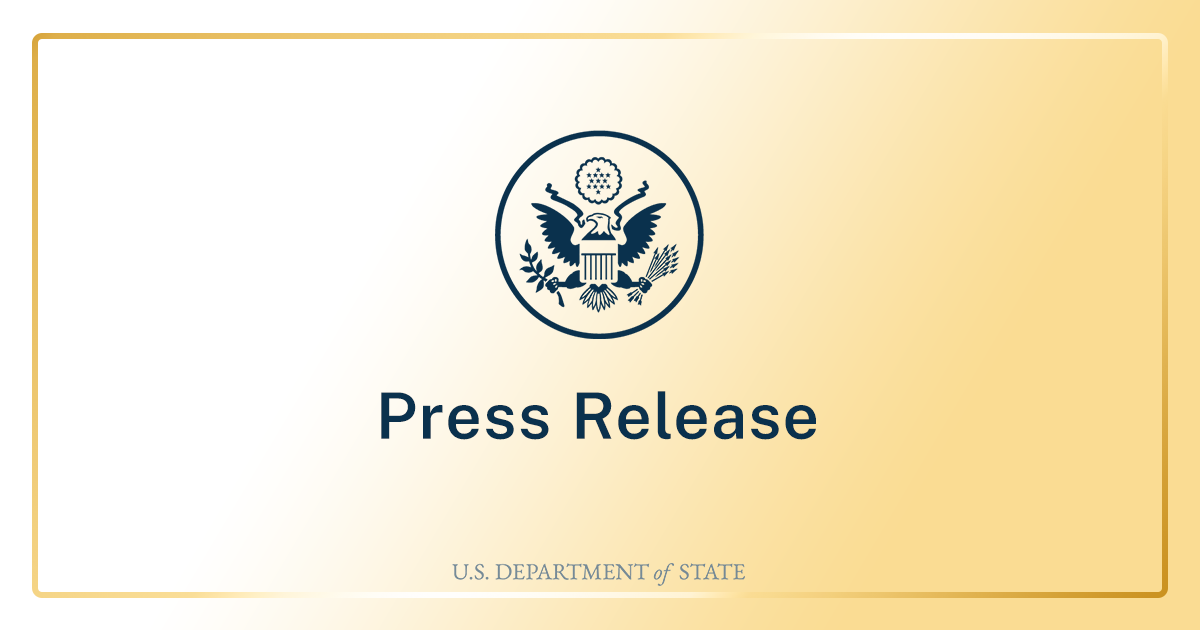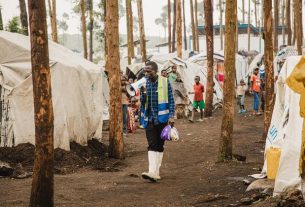Connections between the United States and Belgium predate the founding of the United States and the independence of the Kingdom of Belgium. American citizens sent food and medical aid to Belgians during World War I through Herbert Hoover’s Commission for Relief in Belgium, and U.S. troops helped to liberate Belgium during both World Wars. Testimony to those service members and their sacrifice, the American Battle Monuments Commission’s (ABMC) three cemeteries in Belgium are the final resting place of more than 13,500 American troops who lost their lives in the two World Wars. A founding member and host to both NATO and the European Union, Belgium continues to grow in importance as a U.S. partner.
Belgium’s efforts on global security and multilateral issues are key to defending our shared democratic values across the world. Belgium has taken on important roles supporting Ukraine against Russia’s aggression, including leading F-16 sustainment efforts within the Air Force Capability Coalition and creating a €1.7 billion (approximately $1.8 billion) Ukraine Assistance Fund by using tax revenues from the profits generated by immobilized Russian Sovereign Assets to fund military assistance. The United States appreciates Belgium’s active involvement in international security operations, including contributions to various NATO missions and participation in the Global Coalition to defeat ISIS. Belgium is also a key provider of humanitarian, reconstruction, and development assistance, including to several African countries and the UN and other multilateral organizations.
Belgium and the United States maintain frequent cultural and educational exchanges that continue to bolster our transatlantic ties. The Commission for Educational Exchange between the United States, Belgium, and Luxembourg was established in 1948 with the goal of increasing mutual understanding through academic exchange. Thousands of participants have benefited from exchanges between the United States and Belgium, including more than 3,750 Fulbright scholars, students, and teachers. Amongst Belgium’s prominent Fulbright alumni is current Prime Minister Alexander De Croo.
Bilateral Economic Relations
The Belgian-U.S. trade and investment relationship is one of the largest and most balanced in the world, with annual trade in goods and services of around $74 billion each year. The United States is Belgium’s largest foreign investor outside of the EU, with more than 900 U.S. businesses employing nearly 130,000 people in Belgium. Belgium is the fourteenth-largest source of foreign direct investment in the United States, with $71 billion in total stock. Over 500 Belgian companies employ about 70,000 American workers, and Belgium is the fourteenth-largest importer of U.S. goods in the world. Belgian-U.S. research partnerships are driving advancements in biotechnology, semiconductors, and other future forward sectors.
Belgium has a robust research and innovation ecosystem in critical and emerging technology sectors including biotechnology, semiconductors, and nuclear applications. To cite only a few examples, imec, a prominent semiconductor research center, operates as a research hub for businesses involved in semiconductor manufacturing or use. SCK CEN, Europe’s second largest nuclear research center, has close partnerships with U.S. counterparts dating back to the beginning of the atomic age.
Belgium is also home to a myriad of health and agriculture biotechnology start-ups as well thanks to its strong research and associated incubator programs at the Flemish Institute of Biotechnology. Belgian companies were instrumental in developing and scaling COVID-19 vaccines during the pandemic, and Belgian bio-life companies are leading research on areas ranging from advanced production techniques for COVID-19 therapeutics to resilient seedlings to help address food security.
Belgian-American clean energy projects are playing crucial roles in combatting climate change and building sustainable supply chains. Belgian wind farm companies are partnering with U.S. companies to inject clean energy into both economies. Belgium’s ports are key logistical hubs for global trade and gateways for products entering Europe, including from the United States. The merger of the Port of Antwerp and the Port of Zeebrugge in 2022 transformed the combined Port of Antwerp-Bruges into the second busiest in Europe. Bilateral trade, investment, and R&D are particularly robust in the clean energy, healthcare, advanced technology, and petrochemical sectors; the petrochemical cluster at the Port of Antwerp is the second largest in the world after Houston.
To safeguard key economic sectors and critical infrastructure, Belgium implemented an investment screening law in July 2023 with the goal of strengthening its national security while encouraging trade and building more resilient supply chains.
Law Enforcement Cooperation
Improving law enforcement and intelligence cooperation has been at the center of U.S.-Belgium bilateral relations since the 2016 terrorist attacks in Brussels. Belgium has made significant progress by creating information-sharing platforms among its government agencies, improving traveler screening, passing legislation that aids intelligence gathering, and increasing the budget for law enforcement and security-related ministries. Since 2016, the Port of Antwerp has emerged as the primary gateway for the smuggling of cocaine into Europe. Belgium has responded by increasing funding for police and customs, buying new shipping scanner systems, working with U.S. law enforcement to combat the flow of narcotics from South America, the Caribbean, and criminal networks behind it, collaborating with United States on illicit drugs sanctions, and supporting U.S.-EU counternarcotics cooperation. Additionally, Belgium participates in the Global Coalition to Address Synthetic Drug Threats, specifically in the working groups for Manufacturing and Trafficking and for Detecting Emerging Threats. The United States and Belgium have a shared commitment to counter corruption; both are members of the Council of Europe’s Group of States against Corruption and parties to the UN Convention against Corruption.



